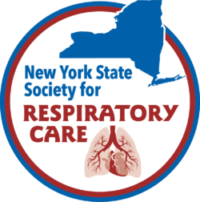The Ad Hoc Team of the NYSSRC initiative for Academic Advancement of the Respiratory Care Profession in NY State continues in their efforts.
- The updated Senate Version to our bill was introduced by Sen. Goundardes as Senate bill S04497.
- The updated Assembly version to our bill was introduced by Assemblyman Magnarelli, cosponsored by Sayegh, Cook, Buttenschon, Gonzalez-Rojas.
- Office of Professions Stakeholders Gathering Meeting was held on Tuesday, April 18th, 2023. Our legal advisor Katherine Herlihy, Esq., Chris Slocum and Stephen G. Smith, attended the meeting.
- Kate was at the NYSED Department and Chris and Steve attended via a Zoom invitationby NYSED. Kate Herlihy introduced herself as representing the NYSSRC.
- There were a number of representatives from the various professional associations at the meeting (There are over 1,000,000 licensed professions in NYS, 46 health-related professions are regulated by the NYSED) including many lobbyists from these organizations.
- Paul Thompson, the newly appointed Executive Secretary for the Respiratory Therapy Licensure Board was present at the meeting.
- Sarah Benson, the Deputy Commissioner for the Professions presented her role overseeing the professions.
- Betty A. Rosa, the Commissioner of Education and President of the University of the State of New York was present.
- License professions increased by 22% from 2021 to 2022.
- OP staff employees increased to 320 employees.
- Kellie Murphy has been working as an Assistant In Professional Education at New York State, responsible for developing a more advanced website with updates on the license profession.
- The SED OP modernization program is a Multi-Step Project, Multi-Year Approach. They include 4 projects as follows:
- Proj. 1-Online Application Development
- Proj. 2- Modernization and Development of the website
- Proj. 3- Develop a new professional system for easy access and traversing the site.
- Proj. 4 – Customer Service Modernization
- The hope is that the newly redesigned Professions System will provide one-step “shopping” for licensing and renewal needs.
- New York State Education Department Professional Survey Responses were shared.
- Ad Hoc Team meeting with Senator Stavinsky occurred on Thursday, May 11, 2023. Remarks were presented to the Senator regarding the BS in RT and the move to make the RRT required to practice Respiratory Care in NYS. A robust discussion followed with many questions asked of the team by Senator Stavinsky.
- Cardiopulmonary medicine, pharmaceutical treatment, and medical technology have significantly advanced since 1992, as have the academic preparation and professional standards for Respiratory Therapists. A corresponding advancement in educational requirement for licensure to a bachelor’s degree is necessary to ensure that future respiratory therapists are adequately academically prepared for this expanding role.
- This higher academic requirement will ensure Respiratory Therapists are able to appropriately manage patients with complex cardiac and pulmonary disorders and continue to play an active role in improving patient outcomes.
- The legislation we are pursuing will improve the health, safety and welfare of New York citizens in need of respiratory therapy services by increasing the educational standards for Respiratory Therapists (RTs) to a bachelor’s degree in keeping with best practices.
- Respiratory Therapists are healthcare practitioners who play an integral part in diagnosing lung and breathing disorders, consulting with physicians on treatments, assessing patients, and recommending specific changes in therapy based on their patient assessments.
- According to research data, 70% of Respiratory Care Managers, are requiring or preferring to hire new graduates with at least a BS in RT, and over 80% would prefer to hire RTs with a BS in RT over the next 5 years.2 This is significant data that overwhelmingly supports the need to move towards a bachelor’s or higher degree to practice in our profession.
- With the paradigm change in the current healthcare environment, the respiratory care profession will need to make some significant changes, which include advancing the academic standards of the profession. According to Smith, SG., Endee, LM., et al, 64% of respiratory therapists agreed that the minimum academic standard be raised to the baccalaureate degree.3 In a recent study by Danzy, J. N., Gilmore, T. W., Smith, SG.,
- Endee, LM., & Wissing, D,. increasing the academic standard to a bachelor’s degree could lead to obtaining a master’s degree in RT, which has the potential to increase salary, promote professional growth, and increase the scope of practice.
- Keene et al asked RTs and respiratory care educators about advanced practice respiratory therapy programs. The majority of respondents (78%) indicated that they would rather remain in their profession with advanced training and education than move on to a physician assistant program (Keene, 2015).
- A four-year program provides respiratory care students with longer periods of clinical rotations, more exposure to complicated cardiopulmonary cases, additional training in advanced medical management and pharmaceutical treatments, and allows for the introduction of more advanced medical technology.

